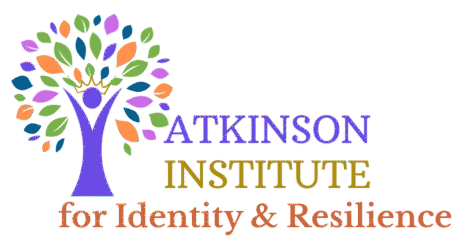Unmasking Imposter Syndrome: Stories, Struggles, and Science
Imposter syndrome whispers lies in your ear, making you question your worth. You’re not alone in this silent battle. Many face the same struggles, feeling like frauds despite their achievements. Our brains can play cruel tricks, but understanding why is the first step toward reclaiming your confidence. Through personal stories and brain science, we’ll explore the depths of self-doubt and offer practical tools to help you rise above. Explore how The Atkinson Institute’s workshops can guide you toward empowerment and resilience. Join us on this journey today.## Personal Stories of Self-Doubt

Imposter syndrome is often a silent battle, fought within the minds of many. Hearing stories from those who have experienced it firsthand can provide both comfort and insight. By sharing real-life experiences, we can better understand the common struggles and recognize the triumphs over self-doubt.
Real-Life Experiences
Real-life stories of imposter syndrome offer a window into the thoughts and emotions that many endure. In an honest reflection, one individual recounts how self-doubt crept into their professional life despite evident success.
-
Facing Internal Criticism: Many struggle with an inner critic that undermines their achievements.
-
Validation from Others: Often, external validation feels necessary to counteract self-doubt, yet it may not suffice.
Experiences shared on platforms like Medium reveal common themes:
-
Constant Comparison: Comparing oneself to others can intensify feelings of inadequacy.
-
Fear of Exposure: Many live in fear of being “found out” as a fraud.
These stories emphasize the universality of imposter syndrome, reassuring those affected that they are not alone.
Overcoming the Struggles
Overcoming imposter syndrome is a journey that requires both inner reflection and actionable steps. Individuals who have successfully managed to rise above their self-doubt often share a similar path.
-
Acknowledgment: Recognizing imposter syndrome as a legitimate issue is the first step.
-
Seeking Support: Connecting with peers, mentors, or therapists can provide necessary support.
-
Reframing Thoughts: Shifting negative self-talk to positive affirmations can transform one’s mindset.
Success stories highlight that perseverance and self-compassion are crucial in this journey:
-
Growth Mindset: Embracing a mindset focused on growth and learning can buffer against self-doubt.
-
Celebrating Achievements: Regularly acknowledging even small successes can build confidence.
These strategies demonstrate that while imposter syndrome is challenging, it can be overcome with determination and the right tools.
The Science Behind Imposter Syndrome

Understanding the science behind imposter syndrome can demystify why it occurs and guide individuals toward solutions. By exploring neurological and psychological perspectives, we gain a clearer picture of this pervasive phenomenon.
Brain Science Insights
Imposter syndrome is not just a psychological experience; it is deeply rooted in brain activity. According to scientific studies, there are several neurological factors at play.
-
Fear Response: The brain’s amygdala is involved in processing fear, potentially contributing to feelings of being an imposter.
-
Reward System: Variations in dopamine levels can affect how achievements are perceived and valued.
Researchers have found that brain activity patterns in individuals with imposter syndrome differ from those without it:
|
Brain Function |
Imposter Syndrome |
No Imposter Syndrome |
|---|---|---|
|
Amygdala |
Heightened activity |
Normal activity |
|
Dopamine Levels |
Lower |
Balanced |
Understanding these insights can pave the way for more effective interventions and coping mechanisms.
The Psychology of Self-Doubt
The psychology of self-doubt, a core component of imposter syndrome, involves complex cognitive and emotional processes. As discussed by the American Psychological Association, several psychological aspects are involved:
-
Perfectionism: A desire for flawlessness often fuels self-doubt.
-
Attribution Bias: Success is often attributed to luck rather than skill, undermining self-confidence.
Cognitive-behavioral approaches can offer valuable insights:
-
Challenging Negative Beliefs: Identifying and disputing irrational beliefs can reduce self-doubt.
-
Building Self-Efficacy: Cultivating a strong belief in one’s abilities can mitigate imposter syndrome.
These psychological strategies highlight the importance of a multifaceted approach to managing self-doubt and fostering confidence.
Building Confidence and Resilience

Building resilience and confidence is key to overcoming imposter syndrome. With practical tools and supportive environments, individuals can transform their self-perception and thrive.
Practical Tools and Strategies
To combat imposter syndrome effectively, individuals can adopt several practical strategies:
-
Mindfulness Practices: Engaging in mindfulness can help in recognizing and accepting self-doubt without judgment.
-
Goal Setting: Setting realistic goals and breaking them into manageable steps can enhance a sense of achievement.
-
Reflective Journaling: Documenting thoughts and successes helps in acknowledging progress and reframing negative self-talk.
By incorporating these methods into daily routines, individuals can gradually build a solid foundation of confidence and self-worth.
The Power of Resilience Workshops
Resilience workshops, like those offered by The Atkinson Institute, play a significant role in empowering individuals. These workshops provide a structured environment to explore and develop resilience skills.
-
Community Support: Participants benefit from shared experiences and mutual encouragement.
-
Skill Development: Workshops focus on building practical skills to manage self-doubt effectively.
Feedback from participants often highlights the transformative impact of these sessions:
-
Enhanced Self-Understanding: Gaining insights into personal strengths and areas for growth.
-
Increased Confidence: Feeling more equipped to handle challenges and setbacks.
Through these workshops, individuals are not only equipped with strategies to combat imposter syndrome but also empowered to pursue their personal and professional goals with renewed confidence. 🌟

